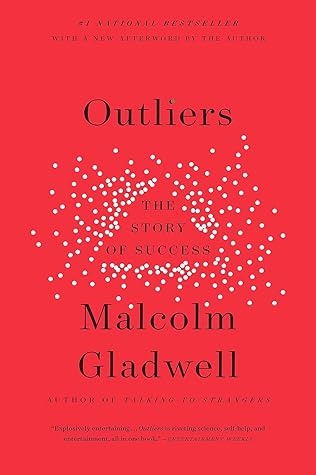More on this book
Community
Kindle Notes & Highlights
Success is the result of what sociologists like to call “accumulative advantage.” The professional hockey player starts out a little bit better than his peers. And that little difference leads to an opportunity that makes that difference a bit bigger, and that edge in turn leads to another opportunity,
he didn’t start out an outlier. He started out just a little bit better.
Achievement is talent plus preparation. The problem with this view is that the closer psychologists look at the careers of the gifted, the smaller the role innate talent seems to play and the bigger the role preparation seems to play.
Their research suggests that once a musician has enough ability to get into a top music school, the thing that distinguishes one performer from another is how hard he or she works. That’s it. And what’s more, the people at the very top don’t work just harder or even much harder than everyone else. They work much, much harder.
“The emerging picture from such studies is that ten thousand hours of practice is required to achieve the level of mastery associated with being a world-class expert—in anything,” writes the neurologist Daniel Levitin.
Practice isn’t the thing you do once you’re good. It’s the thing you do that makes you good.


